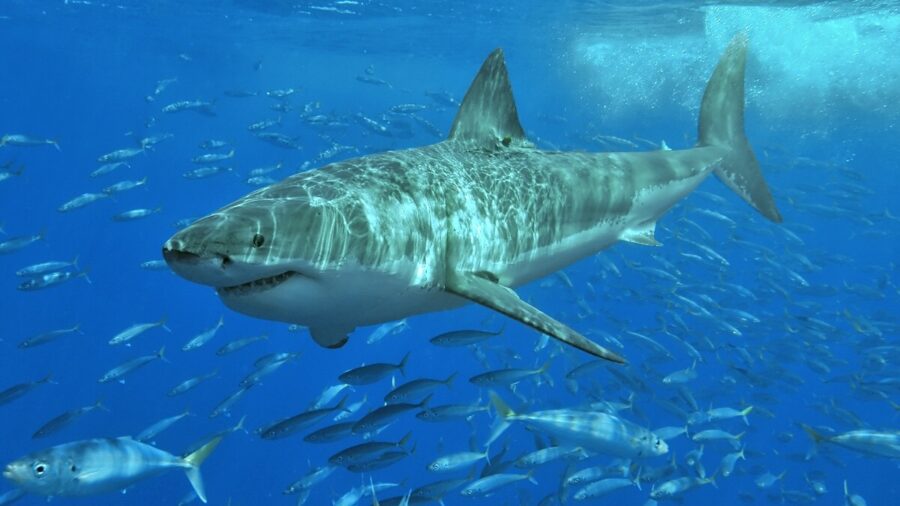Scientists Alarmed Over How Close Great White Sharks Are Swimming To Humans
Juvenile great white sharks like to explore beaches filled with swimmers.

Ah, the sea. With all of its vastness and unfathomable depths, it’s no wonder why many people suffer from thalassophobia – the fear of deep water. Suppose you find yourself overthinking while in a lake, pond, or even the ocean, today’s information will send you swimming back to the shore. According to Plos One, scientists are growing increasingly concerned about how close great white sharks are getting to swimmers just off the coast and into the ocean.
While we’ve been hearing similar reports on the east coast, this study focuses primarily on great white sharks off the coast of California. After studying 700 hours of footage during a research period that happened over 1,600 drone flights on several of the state’s beaches between 2019 and 2022, scientists report that the ocean’s biggest predator is getting closer to humans than they’d be comfortable knowing. The finding uncovered that these carnivorous feared creatures were within a short distance of swimmers a whopping 97 percent of days during the surveys.
Like juvenile humans, juvenile great white sharks like to travel together before setting off toward their own paths of adulthood. The study showed that these young sharks, which can grow to be around ten feet in length, prefer to spend most of their time close to the shores of public beaches before spreading their wings – er fins – and leaving home. Even juvenile humans love spending time by the beach with their friends, so we can’t really blame the sharks for this one.

Before you cancel your vacation plans and message warnings to the surfers in your life, it’s worth noting that while these great white sharks were well within the chomping zone, the sharks weren’t acting out aggressively towards swimmers. During their research, the scientists found that the only unprovoked bite happened in the spring of 2020, and they’re not even sure that a shark was the cause of it but that it may have been an entirely different marine mammal altogether.
While movies like Jaws and Sharknado have driven up the fear between humans and sharks, it’s worth noting that, on average, shark attacks are rarer than they’re played out to be. The article reports that since 1950 there have only been 130 great white shark bites, with only 20 “unprovoked” attacks happening in southern California since 2000. With this in mind, the beaches will undoubtedly stay open, with people not needing to fear for their lives but just to be more mindful when out in the water.
For now, the great white sharks seem to be happy to share the ocean with us, unlike the other giants of the waters – whales – which have been (very fairly) attacking fishing boats around the world. As is the case in any situation, having a decent grasp of your surroundings will make all the difference in ensuring that you’re not overstepping your boundaries while having a little fun in the sun and swimming in the ocean.












